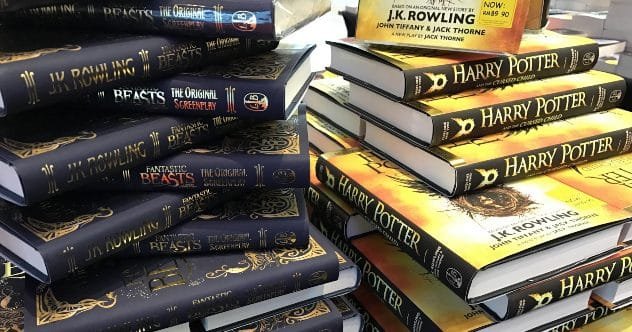Can we all just agree to disagree? Sure, analyzing Shakespearean tragedies has its place, but sometimes you just crave literary ‘brain candy’. High literature isn’t always the goal. When it’s time to relax those critical thinking muscles, even a vampire romance can hit the spot, right?
While some books on this list are guilty pleasures and others aren’t quite my style, each boasts a dedicated fanbase – something remarkable in itself. With that acknowledgment, let’s dive into 10 arguably poorly written books that people still absolutely love.
Related: Top 10 Classic Books That Are Unreadable
10. Twilight by Stephanie Meyer
I confess: I jumped on the bandwagon with this fantasy romance. My mom loved it, my aunt loved it, and yes, we all saw the movie together. You probably did too! We devoured the series and even picked sides – Team Edward or Team Jacob?
Let’s be honest, though. While I admire Stephanie Meyer’s incredible success (who wouldn’t?), even the most devoted fans wouldn’t likely place this vampire vs. werewolf saga alongside literary classics.
Don’t just take my word for it. Horror master Stephen King famously weighed in during a 2009 interview, comparing Harry Potter to Twilight: “The real difference is that Rowling is a terrific writer and Stephanie Meyer can’t write worth a darn. She’s not very good.”
Ouch! While that might sting, Meyer’s bank account probably offered plenty of consolation.
9. The Dark Tower: The Gunslinger by Stephen King
Since we brought up Stephen King, let’s look at one of his own debated works. King is undeniably a literary giant, gifting us classics like Carrie, Pet Sematary, The Shining, and It. Many of these became blockbuster films. Even beyond horror, tales like The Green Mile and The Shawshank Redemption showcase his talent.
However, even geniuses have off moments. While his Dark Tower series has ardent fans, many find it confusing, especially the first book, The Gunslinger. I’ve heard King devotees call it boring and a slog to get through. Often, the justification is that reading it is necessary groundwork for the rest of the series.
Though die-hard fans find reasons to love it, forcing appreciation seems like excessive effort for many readers. King deserves praise for experimenting, but perhaps sticking to his other works might be more satisfying for most.
8. Catcher in the Rye by J.D. Salinger
Holden Caulfield is undeniably one of American literature’s most iconic characters. Whether you love him or hate him, J.D. Salinger’s protagonist certainly makes an impact. Yet, opinions on the novel often hinge entirely on feelings about Holden, overlooking what many find to be tedious writing and a lack of a compelling plot.
Of course, the simplistic, repetitive style might be intentional, reflecting the voice of a sixteen-year-old failing student. Still, if that kind of prose grates on you, this widely read (and often assigned) book might not be your cup of tea, despite Holden’s fame.
7. The Great Gatsby by F. Scott Fitzgerald
Continuing the theme of challenging American literary darlings, let’s talk about The Great Gatsby. I admit I read it young and genuinely wanted to appreciate F. Scott Fitzgerald’s famous novel. It’s a high school English staple, and I usually enjoyed assigned reading.
However, this one just didn’t click. I can appreciate well-crafted prose even if the story isn’t my favorite, but nothing about Gatsby captivated me. If it were just me, I’d chalk it up to personal taste. But I’ve spoken with numerous peers and well-read friends who feel similarly.
Of course, some adore it (especially English teachers). Maybe a re-read later in life will reveal hidden depths, but for now, it remains on my list of beautifully praised but personally underwhelming reads.
6. Something Wicked This Way Comes by Ray Bradbury
Ray Bradbury’s Something Wicked This Way Comes was another book I heard great things about and approached with anticipation. An uncle loved it, and reading it in October seemed perfect for Halloween vibes. The title, referencing a line from Macbeth’s witches, also intrigued me.
From the start, though, the meandering storyline felt difficult to follow, yet predictable in other moments. I persevered, curious about the ending. But the fantastical, almost corny conclusion left me baffled. Really?
Even after finishing, I pondered why others enjoyed it, trying to appreciate the clear good vs. evil theme. Yet, I’ve never quite grasped the deep appreciation some hold for Bradbury’s novel.
5. The Road by Cormac McCarthy
Shifting to a more modern title, let’s consider Cormac McCarthy’s The Road. Like many readers, I actually enjoyed this novel, albeit with reservations. Given its critical acclaim, perhaps I didn’t enjoy it quite as much as the reviewers did.
What makes The Road challenging is its writing style and imagery – it’s incredibly bleak. McCarthy intends this; a post-apocalyptic world isn’t supposed to be cheerful. However, the darkness was so pervasive I needed breaks and had to push myself to finish. The compelling father-son relationship kept me invested, but it’s not a book I ever feel compelled to revisit.
4. Life of Pi by Yann Martel
Including Yann Martel’s Life of Pi might be controversial, given its warm reception and critical acclaim upon release. The massive hype might have even swayed readers to like the story more than they otherwise would have. I wanted to like it, but the premise felt incredibly far-fetched.
While the unbelievable nature of the tale ties into the novel’s ending, it also felt like it dragged considerably. Though you want to see how the story concludes, the believability issues and drawn-out pacing make reading Life of Pi feel painstaking at times.
3. The Hobbit by J.R. Tolkien
Since I’m already challenging beloved books, let’s add J.R. Tolkien’s cherished tale, The Hobbit. While Tolkien’s writing was undoubtedly groundbreaking for its time, some aspects haven’t aged perfectly for all readers.
Fantasy allows authors immense creative freedom, making almost anything plausible within their created worlds. However, Tolkien sometimes dedicates pages to describing scenery, pausing the plot significantly. And yet, a book just over 300 pages spawned three lengthy films! Clearly, taste is subjective.
2. Gone Girl by Gillian Flynn
Gone Girl ranks high on my personal list of books whose praise feels excessive. I don’t recall the writing being particularly stellar, though I admit my bias might be showing. This book solidified a realization for me: I struggle to find redemption in a fictional story where I dislike every single character.
In non-fiction, you deal with real people, warts and all. But in fiction, couldn’t the author include at least one likable person? Reading Gone Girl felt like enduring fingernails on a chalkboard as each character’s unpleasantness unfolded.
1. Tortilla Flat by John Steinbeck
This novel demonstrated that even a brilliant author can produce both timeless classics and… well, duds. Steinbeck’s Of Mice and Men deeply moved me in high school, so reading another of his shorter works seemed like a good idea.
Unfortunately, Danny, Pilon, and their story in Tortilla Flat simply don’t hold a candle to the compelling narrative of George and Lenny. Steinbeck aimed to portray a simple life, but the writing itself is so simplistic it verges on sleep-inducing. If you struggle with insomnia, perhaps give this one a try.
Ultimately, literary taste is incredibly personal. A book’s popularity or critical reception doesn’t always guarantee you’ll love the story or admire the writing – and that’s perfectly okay!
What books do you think are overrated or perhaps poorly written but secretly (or not so secretly) love? Share your thoughts in the comments below!










